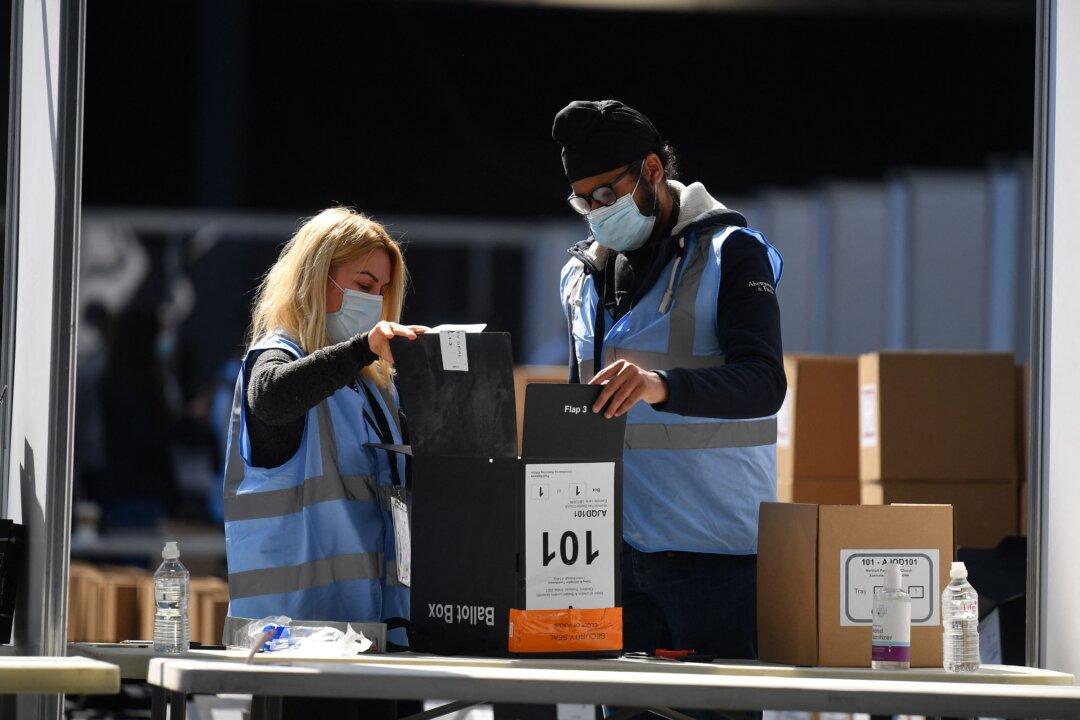The UK government said on Friday it plans to boost election integrity by stopping postal vote harvesting, limiting proxy voting, and clamping down on voter intimidation.
This follows the announcement earlier this week that voters will be required to show photographic ID before being issued ballots at a polling station.





